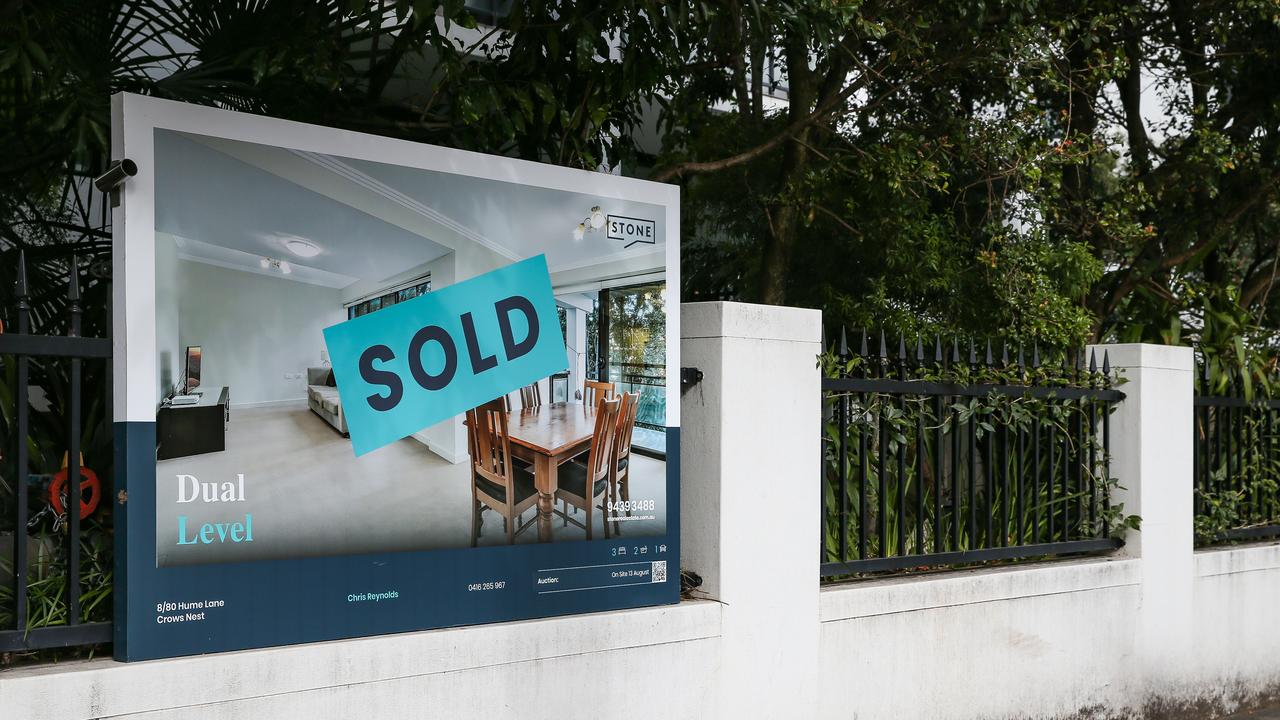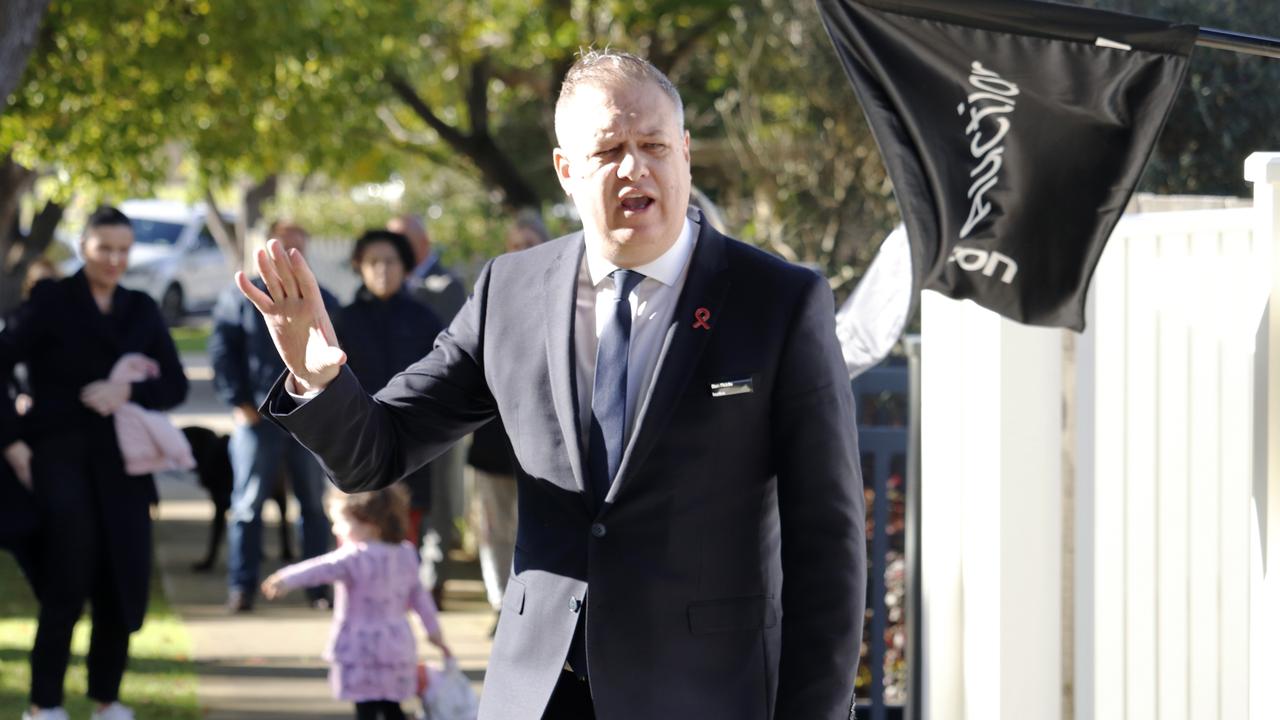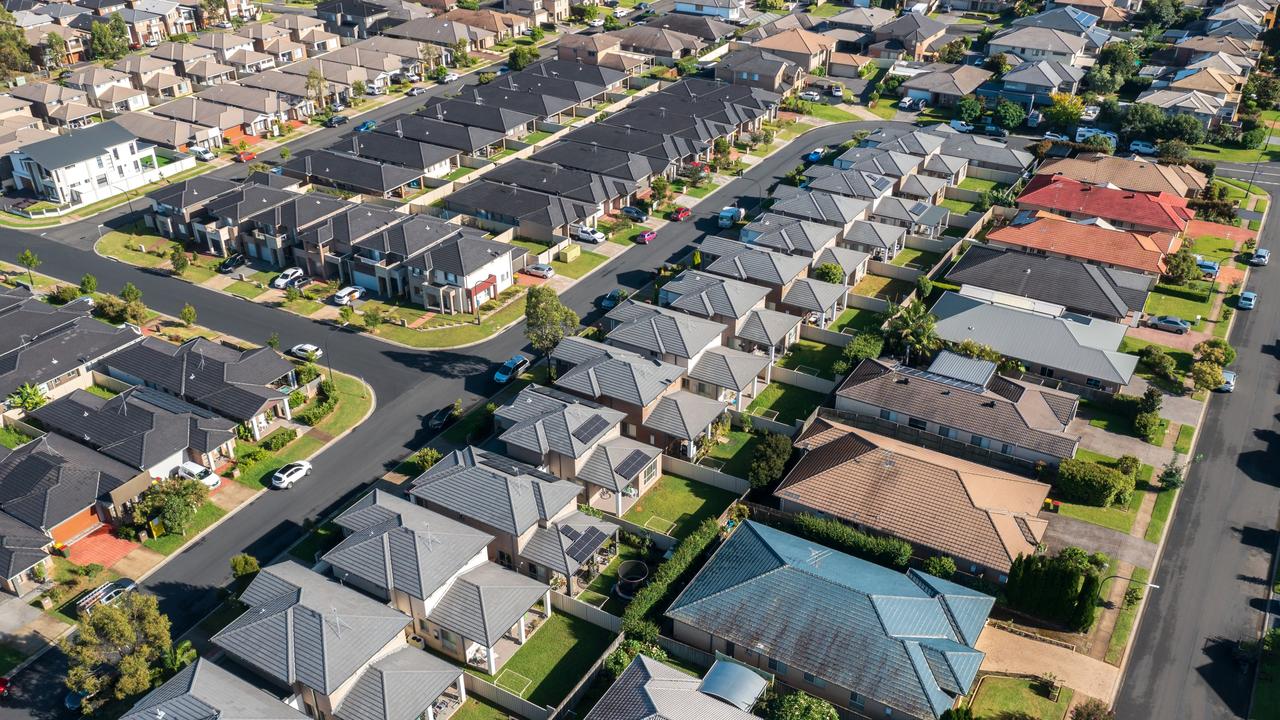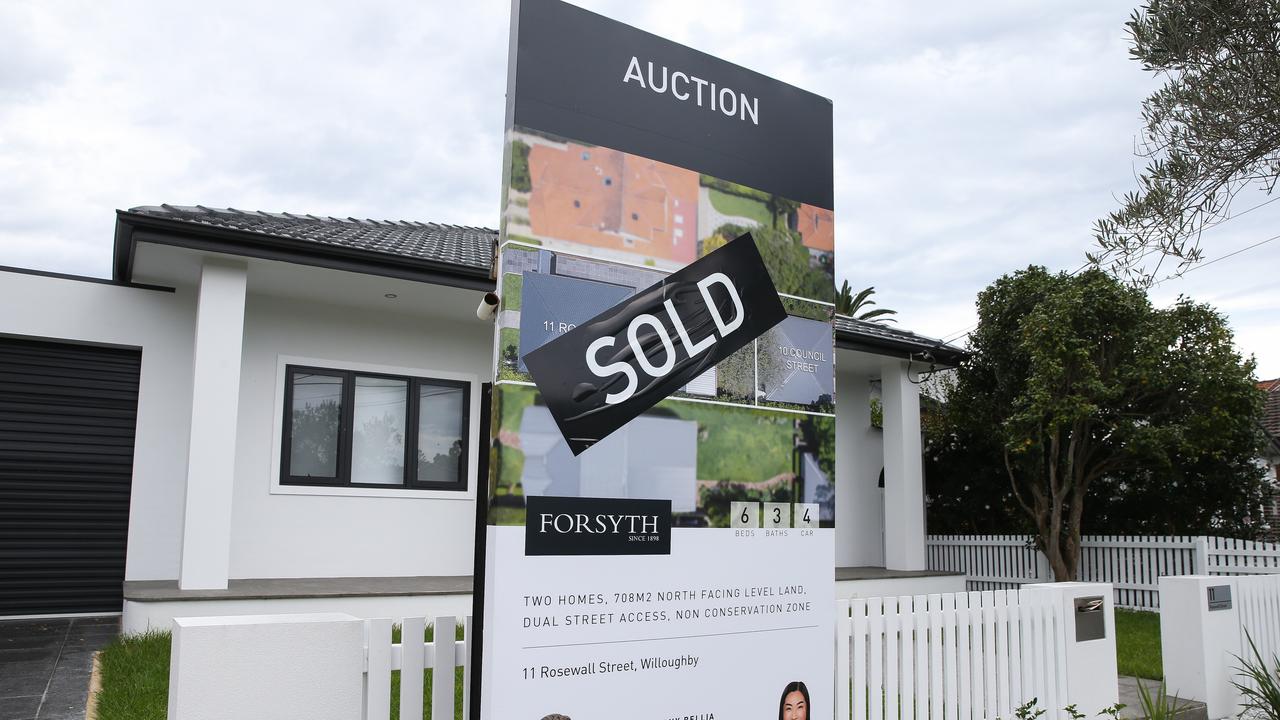Property owners face rising threat of ‘losing their homes’ if rates rise again: study
A controversial Reserve Bank decision could “open the flood gates” to new distressed property sales that would reshape the housing market, experts have revealed.

Another interest rise from the Reserve Bank could “open the flood gates” and drive a sharp rise in distressed property sales.
And many of those sales could be at prices below the inflated sums their owners paid a few years ago if the number of distressed listings hits a critical mass.
Experts polled in Finder.com.au’s monthly RBA Cash Rate Survey said more distressed sales was a looming risk for the market.
MORE: Inside NRL star Nathan Cleary’s new home
Two in three of the nearly 30 economists and property market analysts polled in the research forecast that another rate rise would see more people forced to sell their homes due to unaffordable loans.
It comes as a whopping 41 per cent of Aussie mortgagees surveyed in the comparison groups monthly Consumer Sentiment Tracker revealed that they struggled to pay their home loan in June.

This was the highest proportion recorded since Finder began tracking the question in 2019.
The finding came on the back of a data release from regulator APRA that showed mortgage defaults increased to $15 billion worth of home loans in March 2023.
MORE: Aussie cricket great’s 4000 per cent home sale profit
The consensus from much of the Finder expert panel was that another cash rate rise to 4.8 per cent would push mortgage defaults beyond the most recent peak of $20 billion in June 2020.
Finder head of consumer research Graham Cooke said millions of homeowners were already at the end of their tether.
“Many are facing the distressing prospect of defaulting on their loans and potentially losing their homes,” he said. “A cash rate of 4.8 per cent would likely open the flood gates.”
Evgenia Dechter from UNSW Sydney said we haven’t yet seen the full impact of the recent rate increases on households.

“The default rate may still increase [even if the cash rate is held],” Dechter said.
Mark Crosby from Monash University agreed. “As more borrowers move out of fixed rate loans we are likely to see further mortgage distress,” Mr Crosby said.
For now, property prices have been on an upward trajectory, with PropTrack data revealing median prices rose in every mainland capital over June.
Mr Moore said the increases were being driven by limited stock and continued demand for property.
MORE: King Charles’ secret Aussie home for sale
“The number of new properties hitting the market is well down from what we were seeing last year,” he said.
Mr Moore said while existing mortgage holders were feeling the pinch of interest rate rises, some perspective was needed. Mortgage arrears remained low compared to pre-pandemic levels, he said.
One of the key factors in mortgage default was job loss and to date, unemployment was low, Mr Moore noted.
But a potential risk for the market was the high proportion of homeowners on low fixed rates that would expire later this year and in 2024, Mr Moore said.

“Lots of people haven’t rolled off their fixed rates yet, we would expect more stress as that happens over the rest of this year,” Mr Moore said.
Stella Huangfu from the University of Sydney told the Finder survey that investors may be vulnerable too.
“Mortgage rates (are) typically 2-3 per cent higher than the RBA’s cash rate. At the moment the cash rate is 4.1 per cent, which means we are looking at mortgage rates between 6-7 per cent. For investors, rental income is not enough to cover such a high mortgage rate. I expect to see a significant increase on defaults of both investment loans and owner-occupied home loans very soon.”
Originally published as Property owners face rising threat of ‘losing their homes’ if rates rise again: study




